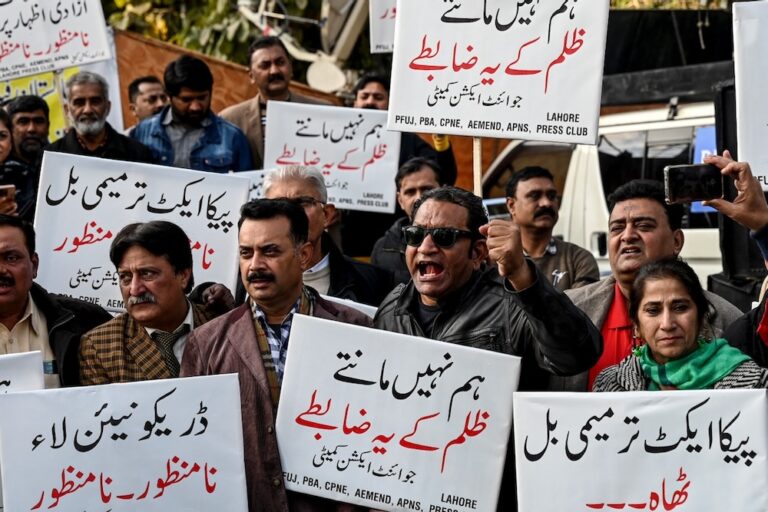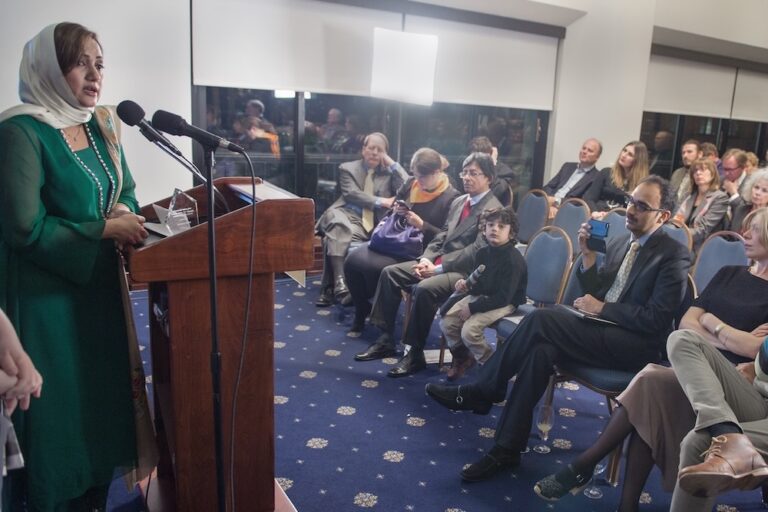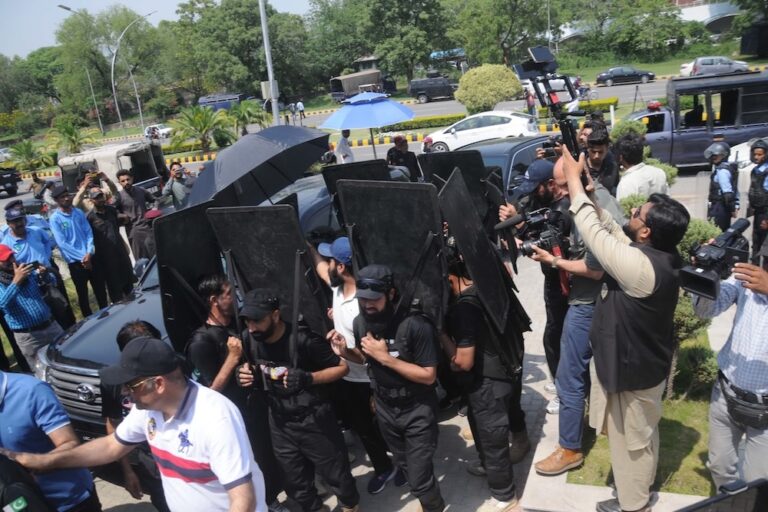(PPF/IFEX) – A division bench of the Sindh High Court, Hyderabad circuit, has set aside the Anti-Terrorism Court’s conviction of journalists Zahoor Ansari and Ayub Khoso in a blasphemy case. Ansari and Khoso are editor-in-chief and a columnist, respectively, of the Sindhi daily newspaper “Alakh”. According to press reports, the High Court sent the case […]
(PPF/IFEX) – A division bench of the Sindh High Court, Hyderabad circuit, has set aside the Anti-Terrorism Court’s conviction of journalists Zahoor Ansari and Ayub Khoso in a blasphemy case. Ansari and Khoso are editor-in-chief and a columnist, respectively, of the Sindhi daily newspaper “Alakh”.
According to press reports, the High Court sent the case back to the original court for retrial and granted the journalists bail of Rs 200,000 (approx. US$3,396) each.
On 25 November 1999, the Anti-Terrorism Court, Mirpurkhas, had sentenced the journalists to 17 years’ imprisonment and a fine of Rs 17,000 (approx. US$289) in a blasphemy case, under Sections 295-A PPC and 8(b)(D) of the 1997 Anti-Terrorism Act.
Local cleric Allama Ahmed Mian Hamadi had lodged a first information report (FIR or criminal complaint) at the Tando Adam police station against Ansari and Khoso for allegedly publishing and writing a blasphemous column in their newspaper.
Both appellants were tried and sentenced in absentia by the trial court. Khoso later surrendered to the court. Ansari has been directed by the division bench to appear before the trial court for a fresh trial.
The counsel argued that the FIR did not state that the appellant belonged to any sectarian or terrorist group, and added that the offence as disclosed in the FIR had no connection whatsoever to the objectives of the 1997 Anti-Terrorism Act.
They argued that the police had wrongly booked the case before the Anti-Terrorism Court, instead of the Sessions Court, which has jurisdiction to try the accused under the circumstances disclosed in the FIR. The counsel claimed that the prosecution had failed to prove the case beyond a doubt and that the controversial article was in fact an academic discussion, as many books had been published in the country on the subject. Khoso’s counsel also pleaded that his client’s conviction in absentia was illegal.
The court remanded the case to the trial court, while setting aside the conviction. It is not yet clear if the two journalists will be retried or not.


